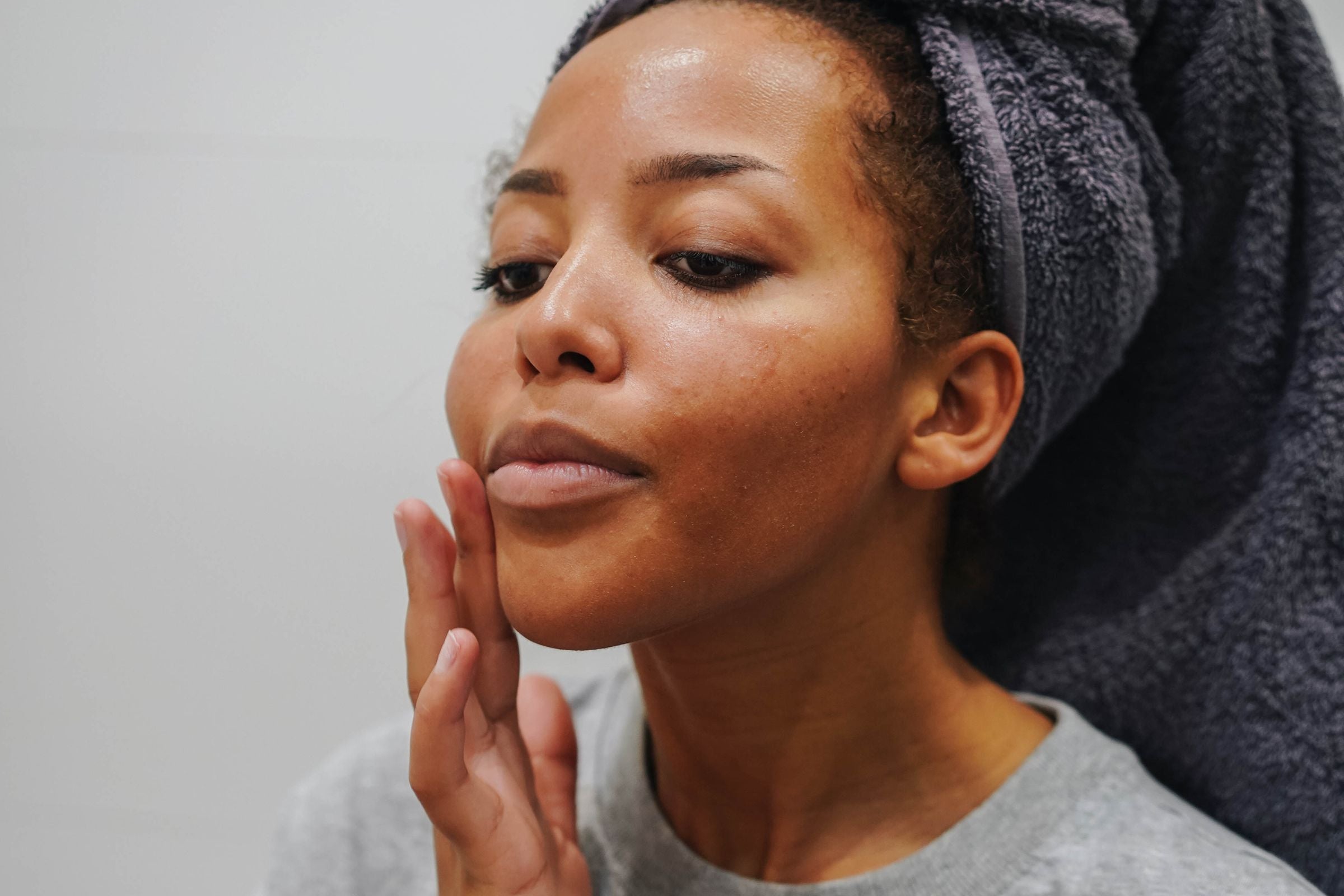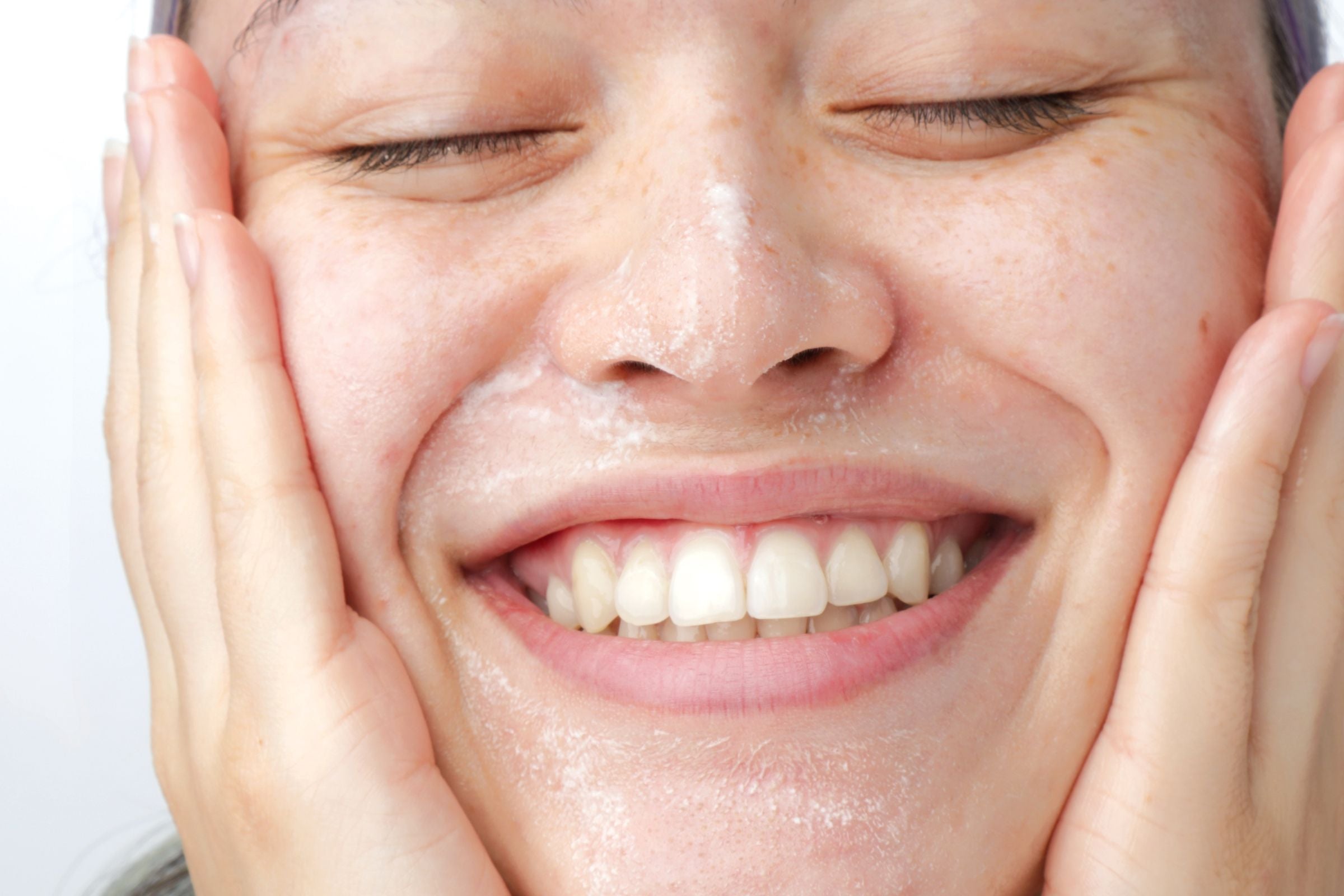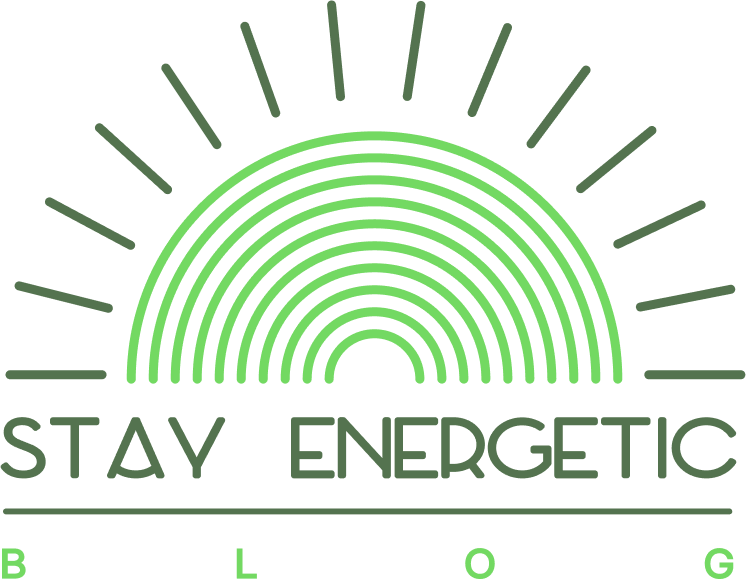Understanding the Impact of Using the Same Towel for Your Body and Face on Skin Health
Posted on January 11, 2025 Written by: 100% PURE®

We’re all guilty of it. And, no, it’s not replacing our morning skin routine with the ‘snooze’ button or slathering on extra retinol hoping to banish wrinkles faster, it’s much more sinister – using the same towel for our faces and our bodies! No harm, right? The short answer is “wrong”.
We know; it’s almost second nature to dry-a-dub our bodies and carry this same normal action to our faces. While using a body towel on your face is certainly convenient and common practice (and feels like an instinctive move), you might want to reconsider. The reason? Using your body towel on your face can introduce bacteria and irritants to your skin that can cause breakouts and other issues.
Keep reading to learn more about why you should consider using separate towels for the face and body, how frequently to swap out your face towel, and some face towel alternatives – plus the best practices for facial towel usage according to dermatologists. Don’t throw in the towel just yet!

The Risks of Using Body Towels on Your Face
We spend a lot of time talking about topics from the proper ways to wash your face to the best facial cleansers for your skin type and everything in between. But what about the best way to dry your freshly cleansed face? According to dermatologists, your face towel matters more than you think.
But isn’t a towel a towel? No! Every little detail matters when it concerns your skin, seeing as we invest so much time following a skincare routine, performing DIY face spa treatments, and ensuring our skin stays hydrated and healthy. So, what we’re doing to wash and care for our faces is almost as important as how we dry our faces.
One key reason for using separate towels for the face and body is the differences in skin sensitivity. Our faces are typically the most sensitive areas of our bodies. When you add sensitive skin, which is like the crybaby of the skin type family in terms of it reacting to everything, and mature skin types, which have a more fragile skin barrier, into the towel dilemma mix, there’s a good reason to have a separate face towel and body towel.
The skin on your face is more sensitive than that found elsewhere in your body; this means that rougher materials used in bath towels can irritate or cause friction. Face towels are smaller and specifically designed for drying the face, often requiring a softer texture due to the skin’s sensitivity. Face towels often prioritize softness and absorbency, using materials like cotton or microfiber, as the face is more sensitive than the body.
If you’re not sold on separate towels for towel softness and skin sensitivities, you might be on the reason for a separate towel for the face and the body when it comes to bacteria and other irritants that can transfer from your body to your face. That’s right! That old, trusted, white body towel that’s stayed fluffy as a cloud from the last wash and still smells more divine than a room of dryer sheets harbors bacteria, oils, and dead skin cells that can easily be transferred to your face, increasing the risk of breakouts, irritation, or even infections.
Before you throw in the towel, the products you put on your body are also waving the white cloth to surrender. The products you put on your body, such as moisturizers, fragrances, and hair products, are not the greatest if they end up on your face. They can clog pores, and increase breakouts and acne, while some could even cause irritation or rashes.
Expert Insights on Towel Hygiene
We’re not the only ones advising against the practice of using the same towel for your face and body. According to board-certified dermatologists Jocelyn Lieb, MD, and Hannah Kopelman, MD., using your body towel on your face can introduce bacteria and irritants to your skin that can cause breakouts and other issues.
Since there are different skin types and sensitivities, some people’s faces may react adversely to the rougher materials often used for body towels. Moreover, there’s a greater risk of transporting bacteria and other skin irritants from your body onto your face.
The skin on your face is more sensitive than the skin on the rest of your body, says Kopelman. “A towel that’s been used on your body may harbor bacteria, oils, and dead skin cells that can easily be transferred to your face, increasing the risk of breakouts, irritation, or even infections,” Kopelman says.
Then there’s the issue of how people react differently to bacteria on their skin than others. It boils down to no two: skin microbiomes are the same. People react differently to bacteria on their skin due to variations in their individual skin microbiome, which is influenced by factors like genetics, immune system response, environmental exposures, hygiene practices, age, and even the specific location on the body, causing different levels of sensitivity to bacteria and potential reactions to them.
As Lieb explains, all your skin doesn’t react to bacteria the same way. While the skin on some parts of your body might permit certain types of bacteria, other areas on your body might not be so lenient. So, some types of bacteria might not cause any issues on your back or groin, but you don’t necessarily want that same bacteria on your face. “A good example would be the groin area and the E. coli bacteria,” Lieb says. “If E. coli gets on the face and causes what looks like pimples, they could be tricky to treat and be more inflammatory, leading to scarring.” In other words, using a contaminated body towel on facial skin can spread E. coli to your delicate dermis.
Finally, we have the issue of common body products, like lotions, oils, perfumes, and body sprays that might work well on your body but not on your face. “Using the same towel for your face can introduce these unwanted elements to your more sensitive facial skin,” Kopelman says. “A clean, separate towel helps reduce this risk and keeps your face more hygienic.”
Optimal Towel Practices for Healthy Skin
Now that you have appeased the face towel goddesses for the sake of beautiful, clear skin and have a separate face towel, is it time to throw in the towel till the next face cleansing? No, not yet. There’s a snag in that Egyptian cotton. You’ll also want to make sure that it stays super clean, meaning you should wash it or replace it with a fresh one every couple of days.
If you’re prone to breakouts or have sensitive skin, you might want to get a fresh face towel even more frequently. Nobody, especially acne-prone skin types, doesn’t want to deal with blemishes. Aside from acne-prone skin, skin bacteria transferring back and forth between your body and face and towel might be problematic if you’re prone to acne or rosacea or have sensitive skin. If that means replacing or washing your face towel daily, it’s better to cave to the little extra detergent and wash your hands of any potential skin problems.
Aside from Sunday-Funday laundry days, keep your towels bacteria- and grime-free by making sure they dry completely between uses. That applies to both your face towel and the one reserved for your body. That might mean moving your towels out of the bathroom and hanging them in a properly aerated place or exposing them to direct sunlight so that they can completely dry.
Towels kept next to a shower, particularly if multiple people are showering in one day, stay damp. Wet towels are favorable environments for bacteria, yeast, or mold. Keep your towels in a dry place with little moisture and humidity so they dry quickly, minimizing bacterial buildup and ensuring effective cleaning.

Exploring Alternatives to Traditional Face Towels
Maybe Sundays are really your ‘fun days’, and laundry has no part in that. Maybe water usage and the environment play a part in reducing your towel-washing footprint. Either way, if you’re looking for an alternative to face towels or washcloths, you have a couple of options. Here board-certified dermatologists Jocelyn Lieb, MD, and Hannah Kopelman, MD., weigh in on alternatives to regular face towels, including makeup remover wipes, disposable cotton pads, and microfiber cloths.
Makeup remover wipes: Makeup remover wipes are an option, but they may not be ideal, depending on your skin type. Lieb notes that these wipes often contain harsh chemicals and preservatives, which may not be the best for your skin.
At 100% PURE, the problem with most makeup remover wipes is that they don’t effectively cleanse skin or properly remove makeup. Many wipes actually just push dirt and makeup around your face, without fully lifting or rinsing it completely away. The chemicals used to preserve wipes can also irritate your skin – and that goes for fragrances, too.
The environment is not a big fan of makeup remover wipes, since most makeup wipes aren’t recyclable or compostable. The average makeup wipe takes a staggering 100 years to decompose. While it’s tempting to swipe off makeup and then toss it away without a second thought, that waste adds up quickly.
With reports suggesting that millions of pounds of makeup wipes are being trashed or flushed, it’s easy to see why this single makeup staple is rapidly wreaking havoc on the planet and its environmental impact.
Disposable cotton pads or microfiber cloths: Disposable cotton pads are generally considered bad for the environment due to the high-water usage and potential pesticide contamination involved in conventional cotton production, making them a significant contributor to waste when used in large quantities; switching to reusable cotton pads is a more sustainable option.
Microfiber cloths are an excellent choice for cleansing and drying the face. Woven from polyester and polyamide, the synthetic fabric is exceptionally soft and absorbent. It’s also relatively thin compared to terry cloth cotton towels, so a stack of microfiber washcloths on your bathroom counter will take up less space.
These are specifically designed for facial cleansing. “These are often gentler and more hygienic, as they can be thrown away or washed after a single use, preventing the spread of bacteria,” Kopelman says.
Recommended 100% PURE Products
Charcoal Clay Cleanser
This cleanser deeply purifies and detoxes pores and is ideal for deep cleaning the pores after towel use. It uses the enzymatic power of lemon not only to brighten, but to gently eat away excess oil, dead skin cells, and acne-causing bacteria. Gently exfoliating lemon also speeds up skin cell turnover to reveal new, smooth skin – and prevent dead skin buildup in pores. Combined with the detoxifying power of kaolin clay, charcoal in this cleanser literally pulls out trapped dirt, excess oil, and debris for fewer blackheads in minutes.
Restorative Sea Culture Hydrating Toner
For those with naturally dry, irritated skin – or skin that changes seasonally – this toner will be your year-round go-to. Our deeply skin-quenching blend rebalances and hydrates the skin after cleansing, preventing dryness and irritation.
What makes this our most hydrating toner is a concentrated mix of plant-based, water-rich ingredients. Refreshing chia seed water packs skin with firming proteins, while hyaluronic acid provides absorbent properties for deeply penetrating, long-lasting hydration.
Rose Water Hyaluronic Acid Serum
With the help of rose hydrosol, this skin-plumping serum provides deep hydration and soothes the skin, enhancing skin health and glow. It combines the soothing, cooling effects of aloe vera with fragrant, redness-reducing rose. Toning white tea and plumping hyaluronic acid complete this recipe for dewy, youthful-looking skin.
Coffee Caffeine Recovery Hydrogel Mask
This mask revitalizes tired skin and helps reduce puffiness and irritation from environmental exposure.
It offers superior hydration and skin rejuvenation. Making sure your skin is properly quenched and supple can enhance elasticity, and radiance, and result in a more youthful complexion.
Restorative Sea Culture Extra Riche Créme
This rich, luxurious cream drenches skin in deep moisture, delivers nutrient-rich sea minerals and vitamins, and plumps skin with hydrating seaweed polysaccharides. It delivers intense moisture and nourishment to maintain skin barrier integrity, especially important for those with sensitive or dry skin.
Final Recommendations and Dermatologist Advice
When we put a lot of time and effort into our skincare routine and taking care of our overall health to promote healthy, clear skin, it’s important to take even the smallest details into mind, as these tiny details might become bigger issues. We know how crucial it is to properly wash our faces, and properly drying them should be of utmost importance, too.
Dermatologists agree that you should not use a single towel for both your face and body. If you do, you run the risk of transporting bacteria and other irritants to your face, as well as body products that are not meant to go on your delicate dermis. If you have sensitive or acne-prone skin, this is even more likely to be a problem.
Dermatologists say it’s wise to use separate towels for your face and body. You can also use something like reusable cotton pads and microfiber cloths as more sustainable options. If you’re unsure about all of this or feel like your skin is reacting poorly no matter what you use, it’s a good idea to consult with a dermatologist for personalized skincare advice, especially if experiencing persistent skin issues.
FAQs:
Why is it recommended to use separate towels for your face and body?
It’s recommended to use separate towels for your face and body because the skin on your face is much more sensitive and can easily be irritated by bacteria, oils, dead skin cells, and body products that accumulate on a body towel used on other parts of your body, potentially leading to acne breakouts and skin infections; essentially, using a separate face towel helps maintain a cleaner, bacteria-free surface for your delicate facial skin.
What are the potential risks of using the same towel for both face and body?
Using the same towel for both your face and body can potentially transfer bacteria, oils, and dead skin cells from your body to your face, increasing the risk of acne breakouts, skin irritation, and infections, especially if you have sensitive skin, as your facial skin is much more delicate than the rest of your body; it’s generally recommended to use separate towels for optimal hygiene.
How often should you replace or wash your face towel?
According to most experts, you should wash your face towel after every 2-3 uses, ideally daily or at least every other day, as it comes into direct contact with your face and can accumulate oils, dirt, and bacteria quickly; if you have sensitive skin or are prone to breakouts, consider washing it after each use.
What are some safe alternatives to traditional face towels?
Microfiber towels are a safe alternative to face towels. A versatile and efficient cleaning tool, microfiber towels can absorb up to seven times their weight in water. When choosing a microfiber towel for sensitive skin, make sure it’s specifically designed for that purpose. Biodegradable face towels are another great alternative as they’re made from natural materials like bamboo, cotton, and wood pulp, and these towels break down naturally and help reduce landfill waste.
Can using the wrong type of towel exacerbate skin conditions like acne?
A towel made with rougher materials can aggravate acne-prone skin. Using the same towel or not properly drying the towel increases the risk of bacteria, fungus, dead skin cells, oils, and other debris that can collect on the towel, which can increase your risk of skin infections, acne flares, and irritation.











